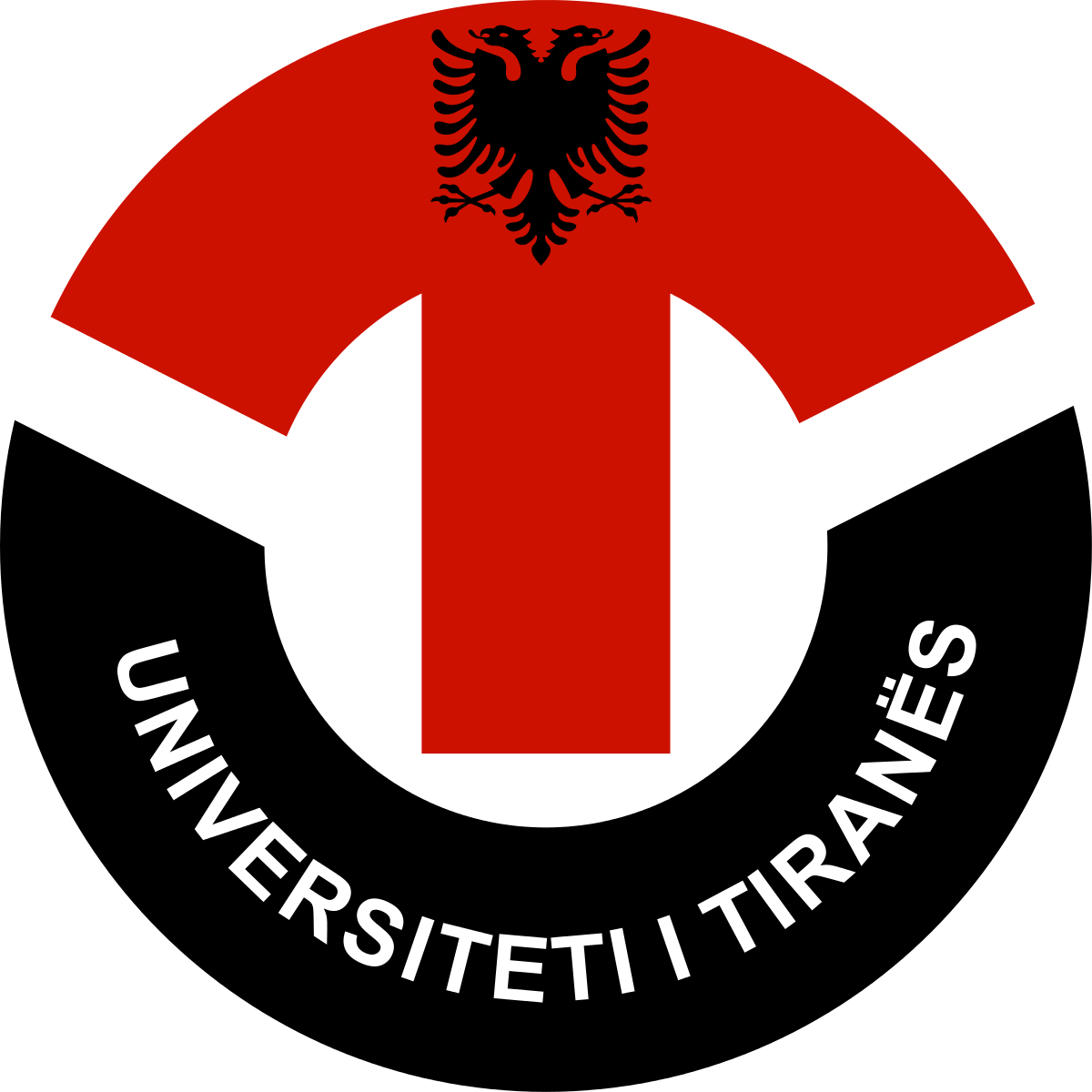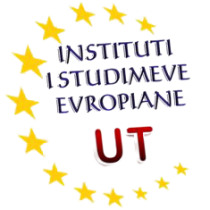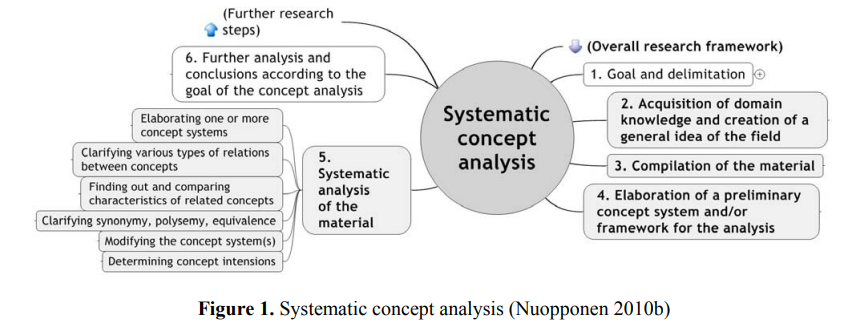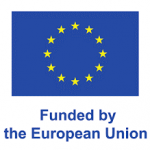


INTERNATIONAL CONFERENCE
The European Union integration’s translation policies and practices: time for the terminology harmonisation.
Abstracts of the conference
Prof. asoc.dr. Gentian Elezi, University of Tirana
Effective involvement of non state actors in the EU accession process
The main objective of this article is to explore and analyze patterns of participation of non state actors in the EU accession negotiations between Albania and the EU. Albania started this process officially in July 2022, and since then an intensive bilateral work between the Albanian institutions and the European Commission has been developed. Inclusiveness of non state actors in the negotiations process is considered as an important component which can help the pace and quality of the aimed results. In this regard, it becomes important to understand and explain the framework established by state institutions for involving other actors, and how functional and productive they are. The paper explores the platforms built for this purpose and their contribution to the process. It focuses especially on the Partnership Platforms for European Integration and their results after 3 years of implementation. The main conclusions of the paper provide a structured explanation of the patterns of the platforms and the main challenges faced.
Key words: accession process, Albania, integration, EU.
Prof. dr. Aljula Jubani, Institute of European Studies, University of Tirana
Regarding the translation of European Union legislation into Albanian and the development of a terminology database within the respective field.
Albania has already entered the final stage of the European integration process, membership negotiations. This phase is expected to be long and difficult, requiring considerable resources and capacities to align all national standards with European ones. In addition to the work of institutions for the adoption of community legislation (Acquis Communautaire), a large cost is expected to come from the volume of translation required. It is the obligation of each candidate country aiming for membership to translate all Community legislation into its own language, as well as national legislation into one of the main languages of the European Union. This process is as complicated and difficult as it is delicate, as experience has shown that it can complicate institutional affairs even after membership.
The EU itself has given great importance to the process of translation, both of its corpus of documents into the languages of particular countries, and vice versa. It is fundamental that language concepts have the same semantic value everywhere, for the implementation of the same legal acts in all countries and in all languages of the European Union.
From the analysis of some of the translated documents, we have noticed problems related to the lack of standardization of terminology, the lack of application of the grammar and spelling norms of the Albanian language, which leads to numerous inconsistencies in the translation.
Key words: translation, Acquis, Albanian.
Prof. asoc. Dr. Eglantina Gishti, University of Tirana
Regarding the importance of the conceptual analyses of the economic terminology for the translation of the European Union legislation.
Analysing and clarifying concepts and their use to different domains (Nuopponen 2010b), is an integral and important part of any linguistics research analyses, in the framework of the translation process. In some cases, the lack of this method influences on the results of this process and consequently could create problems in the message transmission. In this context, our research emphasize the importance of this analyse and suggests the designing of a terminology database for the assistance of the process translation for the European Union integration of Albania. From the theorical point of vu, we focus on the reseach provided by Pilke 2010; Nuopponen 2005b, 2010 (Fig. below) and for the practical results, we focus our analyses on the research we are working on in the framework of the HSTEUI project for the designing of the terminology Database.
Key words: conceptual analyses, translation, integration.

Megi Gjoni, PhD candidate, Institute of European Studies
Discussing main aspects of EU strategic communication in the Western Balkans
The aim of this paper is to analyse the communication strategy of the European Union towards the Western Balkans after the introduction of the Berlin Process in 2014. It will examine the strategies developed by the European Union from an institutional perspective, as well as their implementation and reflection in the latest strategies of each Western Balkan country involved in the process. Regarded as a holistic process in which policies and strategies are deemed essential for the integration of the countries through legislative approximation and addressing of key recommendations, this paper will assess how these countries have implemented their communication strategies within the framework of the Berlin Process integration efforts.
The methodology of this paper relies on content analysis of EU documents concerning communication for the enlargement of the Western Balkans, including strategies and action plans for each of the six Western Balkan countries, as well as EU Progress Reports from the past years. Considering that Kosovo as the sole remaining country without candidate status, the enlargement of the Western Balkans is perceived as an indisputable path toward EU membership, where internal and external factors influence the approach and policies pursued by the EU regarding integration progress. The final part of this paper will address the challenges of regional integration, focusing on the most pressing issues to be addressed by the respective Western Balkan countries.
Key words: EU communication policy, EU enlargement, Western Balkans European integration process, the Berlin Process.
Prof. asoc.dr. Floralba Dado, University of Tirana
Utilisation du corpus comparable : étape importante dans l’enseignement de la traduction et la formation des traducteurs
Dans un monde de plus en plus interconnecté, la demande de services de traduction précis et efficaces n’a jamais été aussi forte. Au sein de l’Union européenne (UE), où plusieurs langues coexistent et où les documents législatifs doivent être traduits avec précision au-delà des frontières, le besoin de traducteurs qualifiés est particulièrement prononcé. De plus, la complexité de la réglementation européenne exige que les traducteurs aient accès à des ressources spécialisées pour garantir des traductions précises et cohérentes. Dans cette contribution, nous explorerons l’importance de former les traducteurs à la Faculté des Langues Etrangères de Tirana à l’utilisation de corpus multilingues comparables, en nous concentrant spécifiquement sur le contexte des réglementations européennes.
Mots clés: corpus comparable, traducteur, UE.
Prof. asoc.dr. Maklena Çabej, Departmant of Linguistics, University of Tirana
Njësimi i terminologjisë së ekonomisë në gjuhën shqipe / The unification of economic terminology in Albanian language
Një rol të rëndësishëm për të kuptuar dhe analizuar tekste të specializuara, pra, tekste dhe kontekste që lidhen me fusha të caktuara, luan terminologjia. Duke njohur mirë terminologjinë e një fushe, çdo specialist arrin të përvetësojë, por edhe të përçojë mesazhet e duhura.
Në gjuhën shqipe, deri aty nga fundi i shek. XX i është kushtuar vëmendje e veçantë njohjes dhe standardizimit të terminologjisë së shumë fushave, duke hartuar edhe fjalorë përkatës. Kështu ka ndodhur edhe në fushën e ekonomisë. Pas viteve ‘90, me ndryshimin rrënjësor të sistemit, ashtu si edhe në fusha të tjera, edhe në fushën e ekonomisë, hynë prurje të reja që më parë nuk përdoreshin ose që ishin të ndryshme nga ato që pasqyroheshin në tekste e fjalorë. Po ashtu, me kalimin e kohës, çdo fushë zhvillohet e bashkë me të zhvillohet e ndryshon edhe terminologjia e saj.
Në këtë kumtesë, duke paraqitur rolin e gjuhësisë në terminologji, do të theksojmë rëndësinë që ka njësimi i terminologjisë së ekonomisë në gjuhën shqipe në shek. XXI, krahas standardizimit të terminolgjisë së fushave të tjera. Do të nxjerrim në pah mospërputhjet konceptuale-semantike dhe emërtuese që janë të shpeshta si në nivelin njohës, ashtu edhe në atë gjuhësor. Përmes një analize të hollësishme, mbështetur në bazën e të dhënave, do të përpiqemi të tregojmë se si për një term të caktuar përdoren disa variante njëkohësisht, shpesh të panevojshme dhe ndonjëherë edhe të gabuara, gjë që shtron përpara detyrën e menjëhershme për njësimin e terminologjisë në fushën e ekonomisë.
Fjalë kyçe: standartizim, terminologji, ekonomi, integrim.
Prof. Emilia Conforti, University of Calabria, Italy
L’aspetto di sistema linguistico-culturale nella traduzione de Acquis.
Nel caso della traduzione è importante considerare qual è il sistema linguistico-culturale di partenza e quale quella di arrivo, includendo ovviamente conseguenze sociali, economiche e geo-politiche. Queste incidono sulle singole realtà artistico-letterarie e condizionano il processo traduttivo dal momento che alla base di ogni traduzione c’è la valutazione attenta e precisa di tutti gli elementi che costituiscono il testo da tradurre, che è manifestazione di una data civiltà, di una data età, di un dato scrittore, della sua lingua e del suo mondo, fino ad essere un processo di comunicazione tra culture. La traduzione diventa quindi un’attività più complessa che coinvolge la comprensione e l’interpretazione dei valori e delle prospettive culturali di entrambe le lingue coinvolte, è un processo articolato che mira a rendere disponibile ai nuovi lettori un testo con le stesse caratteristiche del testo originale, sia dal punto di vista lessicale, che da quello sintattico, stilistico, contenutistico ed espressivo. Questo implica non solo la trasmissione del significato letterale delle parole, ma anche la resa di tutte le sfumature, le intenzioni e le peculiarità linguistiche presenti nel testo originale. Il traduttore deve lavorare attentamente per catturare l’essenza e lo stile del testo primigenio mentre lo adatta alla lingua di destinazione, assicurandosi che il messaggio e l’effetto emotivo siano conservati il più possibile.
Key words: Sistema linguistico, traduzione, Acquis.
Prof.Asoc.Dr. Alba Frashëri, University of Tirana
The role of borrowing as a process of enriching legal terminology
The permanent evolution of modern languages involves various linguistic processes, of which borrowings and neologisms have always been important. They allow enrichment, diversification and modernization. The contact of languages has often provoked the phenomenon of lexical borrowing. It is not uncommon for languages, forced to adapt to new political, economic and social changes, to resort to borrowing to fill this lexical gap and to name, express and describe new realities. Our objective in this paper is to study the important role of lexical borrowings in the Albanian legal lexicon after the 1990s, which mark for Albania the fall of the communist regime installed after the Second World War. The isolation of the country for almost half a century has had its adverse consequences in all areas of life, including language as a social phenomenon. With the establishment of the rule of law, there was the urgent need to make profound changes, especially in the Civil/Penal Code, to introduce new legal realities that did not exist until then. But Albanian legal language did not have a lexicon of its own to meet these new demands, hence the indispensable role of denotative borrowings, which solved the problem of “lexical scarcity”, and as a very reliable linguistic means to allowed the Albanian legal terminology to express the strong changes of the new legal landscape.
Keywords: lexical borrowings, legal terminology, lexical gap, linguistic process
Prof.Asoc.Dr. Ardiana Hyso, University of Tirana
Le traitement automatique du texte littéraire : enjeux et perspectives
La présente communication vise à montrer à travers une étude faite dans le cadre du projet: “L’importance du Web Semantic dans la conception des corpus comparables et parallèles, plus spécifiquement le travail avec la phraséologie, les expressions figées dans l’ oeuvre de Kadaré ” Chronique de la ville de pierre” traduite en français. A travers un exposé rapide des enjeux et techniques du traitement automatique des documents écrits, on présentera un aperçu de deux démarches: d’ une part les techniques de conversion au format texte brut avec automatisé, le.nettoyage, l’ alignement automatisé et vérification, d’ autre part on se focalisera sur l’ exploitation du corpus, afin de voir les apports et les limites à travers les résultats du traitement automatique du texte littéraire en question.
Key words: translation, annotation, common language.
PhD candidate Rafaela Marteta, Institute of Linguistics, Academy of Sciences
Lost in translation? Tools for working better: the importance of the checklist
This article aims to evidence some general characteristics of the administrative language as a linguistic variety characterizing texts used and issued by the public administration to communicate with citizens, other institution or with its own staff within public administration. Due to the role it has to fulfill, the administrative language is of a great pragmatic force and it is considered as a very complex and technical language especially in the field of law. One of the many challenges translators go through when engaged in such a specialized sector it is the variety of legislative systems. It might be helpful proposing strategies and tools to facilitate this process, which requires specific competences, but above all organizing skills in order to face two issues: amount of the work and deadlines related.
What is a checklist? The checklist is a strategic tool to create a personal or a group agenda in order to verify the compatibility of the conditions (human &material resources) with the job description (amount and specificities). A checklist, in this case might be an assessment tool, which controls and orientates the process by structuring its strictly in order to prevent failure. It may serve individuals or groups sharing the same job and criteria to develop it. It sure represents a guarantee for performing results.
Key words: Checklist, translation, activities, specialized language, administrative language, law.
PhD Candidate Lorena Kapxhiu, University of Tirana
Efficiency of Language Translation: Implementing AI and ChatGPT for Teaching Foreign Language Terminology
This article explores the complexity of language translation, specifically examining the differences between human and technological approaches to translating from Albanian to English. It examines the particular difficulties presented by the origin and development of the Albanian language, which is categorised as a separate division within the Indo-European language group. The comprehensive research conducted over several decades by Eqrem Çabej (Çabej, 1964), Robert Elsie (Elsie, 2005) and Leonard Fox (Fox, 1997), which include linguistic, historical, and etymological examinations, shed light on comprehending the challenges involved in effectively translating Albanian literature into English.
It also examines many issues of translation, with a specific focus on novels and literary writings, utilising AI and Chat GPT techniques. The objective is to evaluate the effectiveness and nuances reached by human translations compared to technical translations, particularly in works such as “Chronicle in Stone,” in order to overcome linguistic and cultural obstacles and enhance accessibility. The human translation by Al Saqi Books in 1987 characterises the city as “peculiar” and “prehistoric,” whereas the AI-generated translation depicts it as “strange” and “thrown into the valley,” expressing distinct nuances and engaging readers in diverse ways. After analysing the two translations, it is clear that the AI-generated version effectively captures the fundamental substance of the original author’s intention to evoke a particular emotion in the reader’s mind.
Additionally, by conducting a thorough analysis and investigation of textual contexts, this article offers crucial perspectives on the utilisation of AI and Chat GPT methodologies in the translation of Albanian literature. The process entails thorough analysis and investigation of literary contexts, promoting mutual comprehension among different cultures and cultivating a greater admiration for languages. Most importantly, by utilising digitalized technologies and utilising specialised terminology, it facilitates the collecting of comprehensive data on the efficiency of the system. Consequently, this creates opportunities to investigate diverse applications that can enhance language instruction and translation technology in the future.
Key terms: Keywords: Language Translation, AI Technology, ChatGPT, Foreign Language Teaching, Albanian Literature, Comparative Analysis, Human Translation, Efficiency.
Msc. Flavia Osmani, University of Tirana/University Sorbonna Paris Nord
Designing the juridical terminological Database for European Union translation purpose
The rapid technological advancements in artificial intelligence and human-machine communication have given rise to an immediate need for the digitization of natural languages. Factors such as linguistic demographics or specific policies regarding document digitization have left some languages lagging behind in this process that is of crucial importance in the later development of specialized and effective platforms/systems of the future. Among languages with limited resources is Albanian, one of the oldest in Europe, with unique origins and a number of approximately 5.2 million native speakers.
These considerations have led us to develop three specialised corpora, of parallel and comparable types, in major domains such as law, economics, and literatture. utilising texts in three different languages: English, French, and Albanian. After extracting, organizing, and cleaning our texts, we used the Sketch Engine tool to align the data and build a user-frienly interface.
Keywords: Parallel corpora, comparable corpora, specialized corpora
Msc. Artiola Topulli, University Sorbonne Paris Nord
Construction d’un Corpus Comparable dans le domaine d’Économie : le cas de la terminologie pour la traduction dans la cadre de l’integration dans l’UE.
Cette communication vise à construire un corpus multilingue centré sur des documents économiques en français, anglais et albanais. L’importance de cette initiative réside dans la nécessité d’avoir un ensemble de données diversifié pour permettre une analyse comparative et approfondie dans le domaine de l’économie. L’objectif principal de ce travail était de constituer un corpus riche en documents économiques dans trois langues différentes. Plus spécifiquement, cela impliquait de rechercher, collecter et convertir des documents PDF, Word et PowerPoint en fichiers texte (TXT) exploitables. De plus, il était nécessaire de nettoyer les textes convertis afin d’éliminer les artefacts et les irrégularités qui pourraient affecter la qualité du corpus final. La méthodologie adoptée comprenait plusieurs étapes. Tout d’abord, une recherche exhaustive a été menée pour trouver des documents pertinents dans les domaines économiques en français, anglais et albanais. Ensuite, les documents sélectionnés ont été convertis en fichiers texte à l’aide d’outils de conversion appropriés. Enfin, une étape de nettoyage a été effectuée pour éliminer les balises, les erreurs de reconnaissance, les images, les tableaux, les graphiques et autres imperfections, assurant ainsi la qualité et la cohérence du corpus.
À la fin de l’analyse, nous aurons construit un corpus comparable de texte du domaine de l’économie qui servira au procès de la traduction pour l’intégration dans l’UE.
Msc. Xhesika Shabani, University of Tirana/ University Sorbonne Paris Nord
Modèle de collecte de données terminilogiques : cas de la terminologie juridique pour la traduction de l’Acquis /Model for language data collection: case of juridical data terminology for the Acquis translation
La communication porte sur la création des corpus parallèles indispensables dans le procès de la traduction dans le cadre de l’intégration de l’Albanie dans l’Union Européenne. L’objectif principal de la communication concerne le rôle du corpus dans l’harmonisation de la terminologie mettant en évidence les défis des auteurs à créer une base de donnée dans un contexte où la numérisation des documents du domaine du droit et la qualité de la traduction posent de nombreux problèmes au niveau linguistique et terminologique.
Ueda Qorrasi, University Sorbonne Paris Nord
L’importance du traitement informatique des documents dans le domaine économique pour le processus de traduction / The importance informatics processing of documents in the economic field for the translation process
Cette communication se concentre sur la collecte et la compilation de documents dans le domaine de l’économie afin de développer un corpus multilingue. L’objectif principal est de constituer un ensemble de données exhaustif dans trois langues : français, anglais et albanais, formant ainsi la base d’un corpus parallèle. Le processus implique la collecte de divers textes économiques, tels que des rapports, des articles et des analyses, pour garantir une diversité linguistique et une richesse thématique au sein du corpus.
Le défi réside particulièrement dans la recherche de documents en albanais, étant donné la rareté des matériaux disponibles par rapport au français et à l’anglais. Cependant, en exploitant les ressources et les réseaux existants, des efforts sont en cours pour rassembler du contenu économique pertinent en albanais afin de faciliter la constitution d’un corpus équilibré et inclusif.
Msc. Erinda Tartaraj, University Sorbonne Paris Nord,
Corpus comparables multilingues en économie comme un outil de support dans le process de la traduction de l’Acquis.
Dans cette communication nous montrons le travail dún projet ambitieux visant à construire des corpus juridiques et économiques parallèles et comparables multilingues. Nous nous concentrons dans cette analyse sur la recherche de corpus comparables en français, anglais et albanais, portant sur les textes économiques, notamment les « Normes Comptables Nationales.
About
This is the website of the Jean Monnet Module “Harmonisation and standardisation of the terminology within the EU Integration context”. Project reference : 01047807 — HSTEUI — ERASMUS-JMO-2021-HEI-TCH-RSCH
Disclaimer

“Funded by the European Union. Views and opinions expressed are however those of the author(s) only and do not necessarily reflect those of the European Union or the European Education And Culture Executive Agency (EACEA). Neither the European Union nor EACEA can be held responsible for them.”